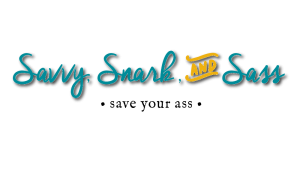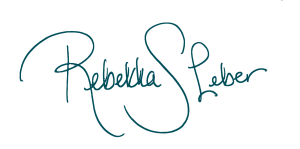I am a lonely writer.
I feel like I am writing this story for an audience of one, me. I’m scared that no one will ever care about it, and glom on to those who show the slightest inclination of interest, feigned or legitimate, out of desperation just to not feel like I am alone in this anymore. I want someone to love this as much as me. Hell, I’d just be happy if someone invested a small amount of time into it as a casual fan. But, I don’t just get excited about my own work. Inspiration comes from everywhere, and I yearn for an environment where writers have come together to collaborate.
I envy people who get to work in writer’s rooms or in tight-knit established writing circles where ideas are exchanged and thrown about as casually as confetti. I pine for collaboration— to pick the minds of other creatives and find solutions together. I get energized in situations where I’m free to just expel ideas with abandon. I’m an idea man, Chuck!
At this point you’re yelling at your screen saying, Hey idiot. Just join a writing forum or a writer’s group or something like that.
Well, I have, and after twelve years of pursuing this collaborative pipe dream, I have decided, writer’s groups suck. After all the groups I have joined, forums I answered questions in, contributions and connections I have made, I’ve gotten very little to show for my efforts. I’m still writing alone and I’m the only one who cares about my story.
In a world where the internet exists, where there are countless communities designed specifically to connect writers of even the most esoteric genres, how can this still feel like a solitary pursuit? How is it that, even though I have writer friends and belong to different writing communities from fanfiction websites to a private slack of former Inkshares authors who all went rogue, I still feel like I’m alone and I am the only person who cares about my story?
Without the limitations placed on us my the perceived parameters of our own projects, we tap into pure imagination. We open our minds.
The answer is simple: I am the only one who cares about my story, period. Sure, I might have a few fans or writer friends who are interested in the idea, but the thing about writers is that they are all way more wrapped up in their own projects to care about anyone else’s. Writers are fucking selfish.
What? What? What? You expect me to give my valuable time and creative energy, wasting that on someone else’s project? The short answer to that is yes, yes I do. So go ahead. Yell at me, and scoff sarcastically, clutching your metaphorical pearls in disgust as you ask: Why would I put my limited time towards focusing on somebody else’s creation?
Well, since you asked so politely, here are several reasons why you should.
The beauty of helping other writers through their blocks is it unlocks a beautiful mechanism of our brain we often limit when writing our own works— our imagination. When we’re brainstorming on our stories, we automatically start out with limits. Our brain throws out a random idea, and we immediately begin negating it to death, throwing out a million reasons why it won’t work. That’s out of character for my lead; the magic system doesn’t work that way; that feels like a deus ex machina; blah blah blah. I’ll wallow in creative agony for hours, days, weeks, months, years, trying to find creative solutions to corners I have written myself into because I’m afraid that a good idea will force me to go back and change what I’ve already spent hours, days, weeks, months, or years working on. I’ll throw out an idea even before I’ve played around with it simply because it doesn’t fit what I thought I wanted to write. But, if a writer friend comes to me and lays out their specific writing dilemma, I suddenly turn into the Muse from Dogma.
 Serendipity the Muse, Dogma (Kevin Smith, 1999)
Serendipity the Muse, Dogma (Kevin Smith, 1999)
So, why is it that when asked by another writer for help solving their own problems that I can come up with a million ideas, but can’t come up with any for myself? Easy. I don’t have any stake in their story. I’m not the one who has to rewrite things if my ideas don’t fit. I have the benefit of being removed from the situation, and with that comes clarity and flexibility. I can throw out a dozen ideas in a minute, no problem, because what is the worst thing that is going to happen— they say no, they don’t like that idea? Who cares, here is a dozen more ideas. I’ve got a thousand of them. Ideas are everywhere.
Without the limitations placed on us by the perceived parameters of our own projects, we tap into pure imagination. We open our minds. The benefit to the other writer is that they can see things they could not see before, solutions that may have been obvious, that were obscured by their limited perspective.
Okay, that’s great for the other guy, but what about me? I still don’t see why I should waste my time and creative energy for someone else’s benefit.
Well, if you could look past your own selfishness for a moment, your limited perspective if you will, you’d see there are two benefits for you that result as a by-product of your creative generosity: 1) you just generated a bajillion ideas right there, and even if you are writing a different genre than your writing buddy, there still might be a gem in their you could mine and use to fit your own story needs, and 2) your writing buddy is likely to turn around and say, “Dude, that was super helpful. Thank you. What are you stuck on? Maybe I can help.”
I envy people who get to work in writer’s rooms or in tight-knit established writing circles where ideas are exchanged and thrown about as casually as confetti.
As writers, we perceive our time as valuable, a precious non-renewable resource. Most of us are hobby writers hoping for a break while we work or attend school full-time, juggle family and social obligations, and also try to make time for other hobbies or maybe just relaxing and doing nothing. So, we hoard our creativity, our time, and our energy like Golem and the One Ring. We join communities to connect with other authors, but we only ever talk about ourselves, our projects, and use those connections to try to get people excited about our projects. But, those other writers are so engrossed in hoarding their time, energy, and creativity, they form surface level connections with the other writers in the group, and never actually go out of their way to help, collaborate, or even just fucking read/watch/listen whatever content you’ve produced.
I don’t know how many times I’ve helped out a “writing friend” who was stuck and needed to talk through a block, was begging for a beta, or a multitude of other reasons a writer needs help, only to be told when I hoped the favor would be returned “I’ll get to it when I can, I’m just so busy” or “I don’t want to make promises right now” or “I’m swamped as it is”.
Did I offer to help? Yes. Did I do it because I automatically assumed that my investment in you and your work would yield an investment in me and mine? Yeah, kinda. Do you owe me because I was kind enough to help you out? Honestly, no. Nice people don’t do nice things because they want to be rewarded, and I know that. But, it doesn’t make you less selfish for not even offering, or even worse, offering with the condition that you want to pay me back when you can, which is basically the death sentence of promises.
I’ve abandoned writing groups for this very reason, and that too was selfish. I wasn’t getting anything out of it. I felt like I was only ever giving and never receiving. I crave to be part of a creative conscious bigger than myself. It energizes me, and it makes me a better, more productive writer. Last night, I spent what probably amounted to less than an hour helping a writing buddy just to brainstorm some ideas, and even if 99% of the ideas I threw out were unusable to him, or even just bad, there were a few that absolutely broke through his creative block. And, as a result, I was energized to work on my own stuff. Sure, I gave up my energy and time for someone else, but it made the time and energy I put towards my own work more productive in the long run. The added bonus was he immediately turned around and asked what I needed help with.
You expect me to give my valuable time and creative energy, wasting that one someone else’s project? The short answer to that is yes, yes I do.
Instead of sequestering myself to stagnate on ideas I have mulled over umpteen times, I gave up a little bit of time, and was even able to multitask doing other things while I helped him over Slack, and I benefited from that exchange immensely. I even cannibalized one of my own ideas (which is another benefit I argue is a good reason to write fanfic in this article here).
My point here, whether I’m managed to express it well enough without sounding whiny, is this: We are in this together. To get, we must give. I want people to care about my stuff, so I put myself out there, hoping to make connections, and sadly, they turn into dead end streets. People want me to beta for them, buy their books, watch their content… but don’t have time to return the favor. I get it— we’re all busy. But, aren’t you lonely? Don’t you feel like you’re suffocating over there by yourself. Come up for air. Step away from your own thing for just a few minutes and reach out to another creator in need. Stop focusing on the U in Community. If you would stop being so selfish and short sighted, and you just might prosper more than you would on your own.






